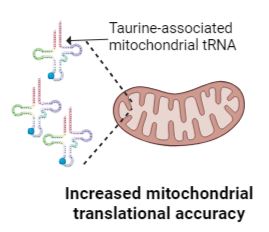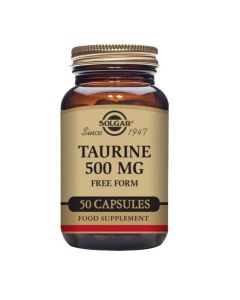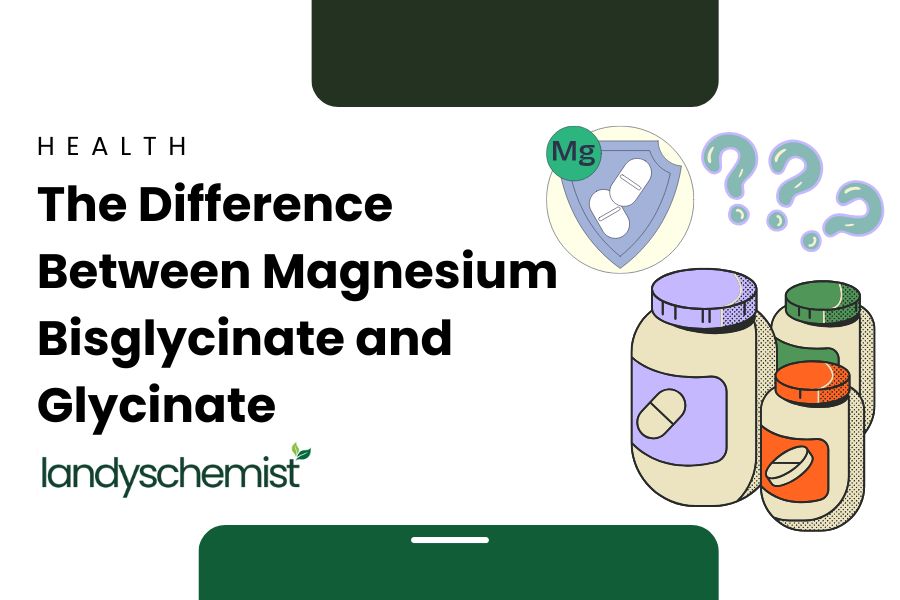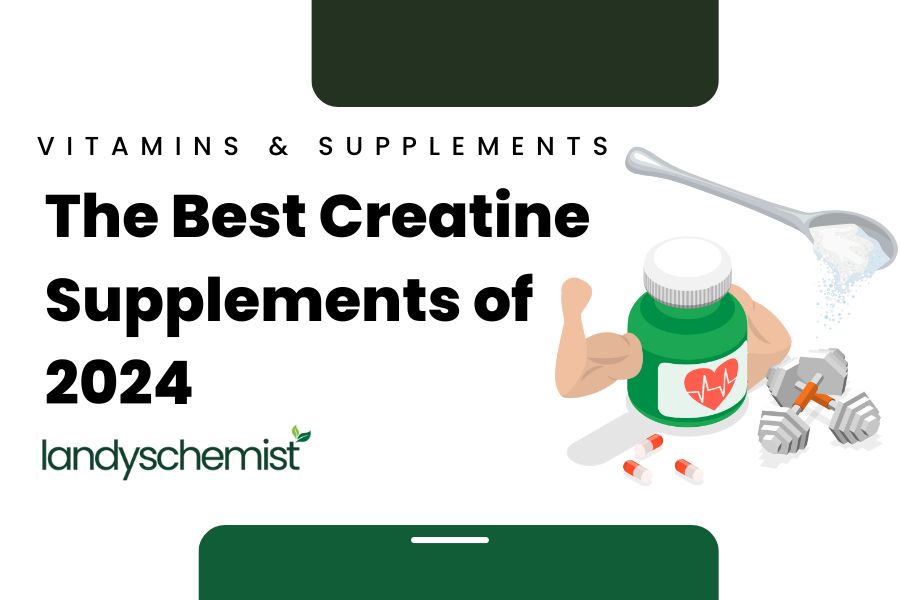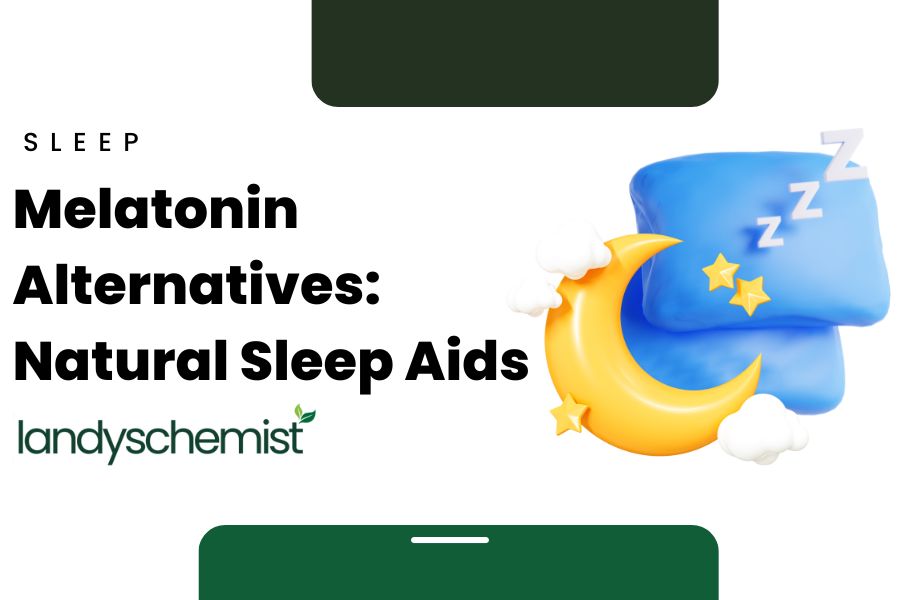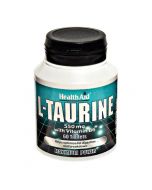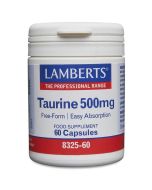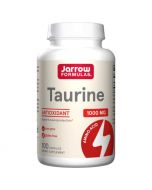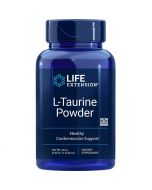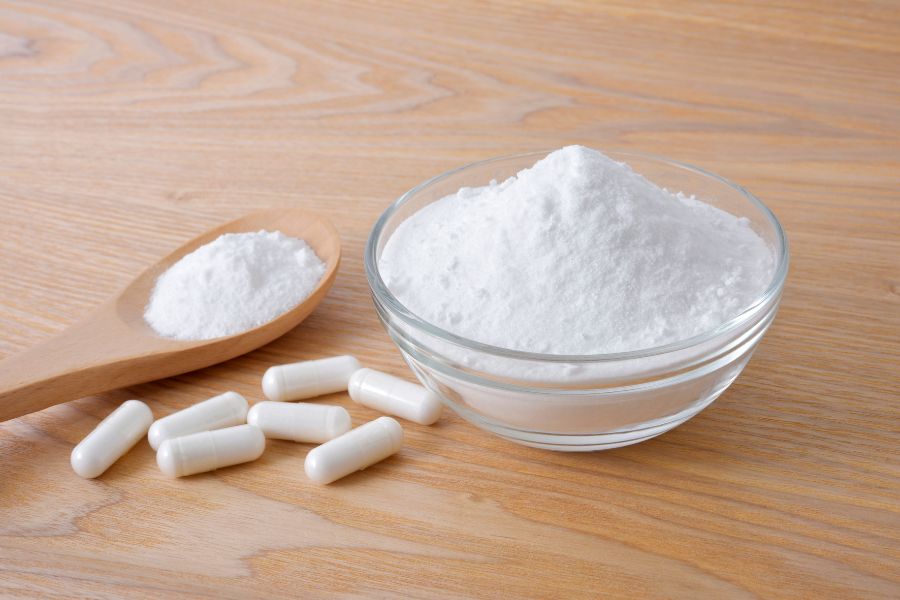
Taurine: The key to anti-ageing?
Scientists and researchers are constantly finding new compounds with promising anti-aging properties. One such compound that has been garnering attention recently is Taurine. Whilst it is widely known for its presence within energy drinks, in particular Red Bull, its benefits go far beyond boosting alertness and vitality. This amino acid like molecule has been linked to a myriad of health benefits including its potential to slow down the ageing process.
Keep reading if you are intrigued by the idea of harnessing the potential anti-aging benefits of taurine and discover its role in the quest for prolonged youthfulness and vitality!
What is Taurine
Taurine, often associated with the notorious energy drink Red Bull, has garnered attention due to speculations regarding its origin. Contrary to popular belief, taurine does not derive from bull testicles. Rather, it is an amino acid like micronutrient that plays a crucial role in numerous biological processes including osmoregulation (maintaining hydration and balance of electrolytes in the body), antioxidant activity, and supporting the nervous system and cardiovascular health.
Throughout history, taurine has been recognized for its vital role in human health. Its discovery can be traced back to the bile of an ox, which led to its naming. The Latin word "Bos Taurus," meaning Bull, pays homage to this origin.
Sources of Taurine
Although taurine can be naturally produced within the body, other main sources of taurine include animal proteins including meat and seafood such as beef, turkey and shellfish. Taurine is not generally found within plant foods. And so those who consume a vegetarian or vegan diet tend to consume less taurine and have lower levels of taurine within the diet.
In addition to obtaining taurine through food, they are also present within some energy drinks such as Red Bull which contains up to 1000mg of taurine per 250ml can.
Animal-Based food sources of Taurine
Taurine is abundant in animal-based foods, particularly seafood and meat products. Seafood generally contains higher levels of taurine compared to meats, and its consumption has been associated with potential cardiovascular benefits. There can be up to 827g of taurine per 100g of scallop!
Taurine is naturally produced in the body
Taurine is naturally present in various tissues throughout the body, including the brain, heart, eyes, muscles, and kidneys. This is through a multi-step biosynthesis pathway process involving the amino acid cysteine being converted into taurine. This happens predominantely in the liver and kidneys.
This process uses enzymes such as cysteine dioxygenase (CDO), cysteine sulphinate decarboxylase (CSAD) and hypotaurine dehydrogenase (HTDH).
Breast Milk is a source of Taurine
Taurine is naturally present in high concentrations in breast milk, particularly during the earlier stages of lactation. It plays a crucial role in infant development, supporting the maturation of various organs and systems including the central nervous system and visual function.
Taurine can be synthetically produced
The form of taurine found in supplements and energy drinks is usually synthetic, meaning that it did not originate from animal sources, making it suitable for vegans and vegetarians. They are usually produced within a laboratory.
How does Taurine Work in the body?
Taurine as an antioxidant
Taurine serves as an antioxidant, effectively neutralizing harmful free radicals and safeguarding cells against oxidative stress-induced damage. By counteracting these highly reactive molecules, taurine shields cellular components such as lipids, proteins, and DNA from oxidative harm and helps to preserve mitochondrial function.
Additionally, taurine supports the body's antioxidant defence systems by elevating the activity of antioxidant enzymes like superoxide dismutase (SOD), and antioxidants like glutathione (GSH). Taurine also exhibits anti-inflammatory properties and decreasing the production of pro-inflammatory cytokines. This anti-inflammatory action helps to limit inflammation-induced oxidative stress and subsequent cellular damage.
Taurine for cognitive function
Taurine plays a crucial role in neurotransmission, facilitating the transmission of signals between nerve cells in the brain and spinal cord. It enhances the activity of inhibitory neurotransmitter receptors, such as GABA(A) receptors which causes an increased chloride ion influx. This helps regulate neuronal excitability which helps to regulate brain function and promotes calmness. Imbalances in neuronal excitability can contribute to neurological disorders such as epilepsy.
Taurine plays a role in regulating calcium levels within neurons. By regulating intracellular calcium concentrations, taurine helps modulate neuronal excitability and synaptic transmission. This allows for effective information processing in the brain such as learning, memory formation and cognitive function.
Taurine for cardiovascular function
Taurine contributes to cardiovascular regulation by modulating the electrical activity of the heart and promoting the relaxation of blood vessels.
Taurine helps to regulate blood pressure, exhibiting antioxidant activity, and reducing inflammation. It acts as a calcium channel modulator, causing vasodilation (widening of blood vessels) and lower blood pressure.
Taurine enhances cardiac performance and protects against ischemic damage (injury to the cell caused by reduced blood flow). Additionally, taurine exhibits anti-inflammatory effects by inhibiting pro-inflammatory cytokine production and reducing endothelial inflammation which can prevent heart tissue damage. Higher dietary intake of taurine can potentially decrease the risk of cardiovascular diseases.
Taurine for cholesterol metabolism

Taurine plays a vital role in the conjugation of bile acids within the body to help its solubility and aiding nutrient absorption. This process involves the transfer of taurine to bile acids in the liver, forming bile salts that enhance the solubility and emulsification of dietary fats.
Taurine-conjugated bile acids facilitate the digestion and absorption of fats, aid in cholesterol metabolism, and possess antioxidant properties. Scientific studies in cats have shown that taurine deficiency leads to reduced bile acid conjugation and impaired fat absorption.
What are the benefits of taurine?
Taurine and diabetes
In a study of 12,000 humans aged 60+ in Europe, those with higher taurine levels were found to be healthier, with fewer cases of type 2 diabetes, lower obesity, and lower levels of inflammation.
Taurine has shown potential benefits for insulin sensitivity, which can help reduce the risk of type 2 diabetes and improve blood sugar levels. A study discovered that individuals with diabetes have a 25% lower taurine concentration compared to non-diabetic individuals, indicating a potential impact on blood sugar regulation.
Moreover, research has demonstrated the protective effects of taurine against complications associated with diabetes, including nerve damage, kidney damage, and heart disease. These findings highlight the potential role of taurine in promoting overall diabetes management and reducing the risk of related complications.
Taurine protects the brain
Taurine has shown promise in improving cognitive function and supporting brain health. It has neuroprotective and anti-inflammatory properties which may help combat age-related cognitive decline and reduce inflammation. There have also been some preclinical studies which has shown that taurine is able to minimise the damage caused as a result of stroke or injury to the brain.
The fact that taurine acts as an agonist to GABA receptors highlight its potential to help with anxiety and stress, promoting calmness and preserving normal cellular function.
Taurine supports heart health
Taurine exhibits promising benefits in regulating blood pressure and lipid metabolism, as well as improving heart function, making it a potential protector against heart disease. Research suggests that taurine plays a role in managing cholesterol and triglycerides, which are fats that can contribute to the blockage of arteries and heart disease. Higher levels of taurine have been associated with reduced cholesterol levels, lower blood pressure, and lower rates of death from heart disease. This is due to taurine improving blood flow in the vessel walls and enhancing heart muscle contractions.
In a study involving individuals with heart failure, the supplementation of 500mg of taurine three times daily for two weeks resulted in significant reductions in total cholesterol and C-Reactive Protein (an inflammatory biomarker) levels before and after exercise. These findings indicate that taurine may have a positive impact on lipid profiles and inflammation in individuals with heart conditions.
Taurine supports energy production
Taurine offers potential advantages for those who experience delaying muscle fatigue. A comprehensive review investigating the impact of taurine on the performance of athletes revealed several benefits, including better intake of oxygen by the body, less muscle damage, faster recovery times, and enhanced strength and power. However, it should be noted that the effect of taurine on exercise performance appears to be modest and inconsistent, underscoring the need for further research in this area.
Intriguingly, taurine can be incorporated into mitochondrial transfer RNA (tRNAs), which can potentially enhance mitochondrial translational accuracy, thereby improving the energy production.
Taurine for anti-ageing
While taurine's potential anti-ageing benefits are still being explored, scientific research highlights its multifaceted roles in promoting cellular health, combating oxidative stress, supporting cognitive function, and maintaining cardiovascular wellness. As we age, our bodies experience a natural decline in various physiological processes, leading to the onset of age-related diseases and a decrease in overall vitality.
However, recent studies suggest that taurine may hold promise in counteracting the effects of aging. Preliminary findings indicate that taurine supplementation has the potential to enhance mitochondrial function, reduce inflammation, and strengthen cellular repair mechanisms, all of which contribute to the ageing process.
Taurine deficiency has been implicated as a potential driver of ageing, underscoring the need for clinical trials to explore the impact of taurine on healthy lifespan in humans. Interestingly, supplemental taurine has been shown to extend the lifespan of mice, although the precise mechanism remains unclear.
Moreover, in rodent studies, a daily intake of 500-1000mg of taurine supplement per kg of body weight has been associated with improvements in strength, coordination, and cognitive function. These findings provide intriguing insights into the potential of taurine as an anti-aging agent, but further research is required to fully elucidate its mechanisms and establish its efficacy in humans.
How to take Taurine
Taurine is available in different forms, commonly available as a dietary supplement in various forms such as capsules, tablets, and powders.
There is no established dosage but typically, the dosage of taurine supplements for adults is between 500-2000mg per day. It is advisable to start off at a lower dosage and gradually increase, if necessary, whilst closely monitoring the effects with a medical professional.
Taurine can be taken with or without food, being generally well tolerated when supplemented correctly.
It is worth noting that taurine acts as a cytochrome P450 enzyme inhibitor which is involved in the breakdown of substrates including anaesthetics and antiepileptics. This means that it could interfere with medications that rely on this enzyme to metabolise drugs such as antidepressants, antiepileptic drugs, warfarin, and statins. So, you should always consult with a medical professional as to whether taurine will be suitable for you.
Product Recommendations:
Summary
- Taurine is a compound found within the human body, classified as a conditionally essential amino acid. It has functions within the brain, heart and muscles.
- Deficiencies in Taurine can cause impaired vision, muscle weakness, cardiovascular issues and fatigue.
- Taurine plays a crucial role in regulating electrolyte balance, supporting cardiovascular health and enhancing the immune system. It acts as a powerful antioxidant, protecting cells from oxidative stress and damage, including chronic and acute liver injury.
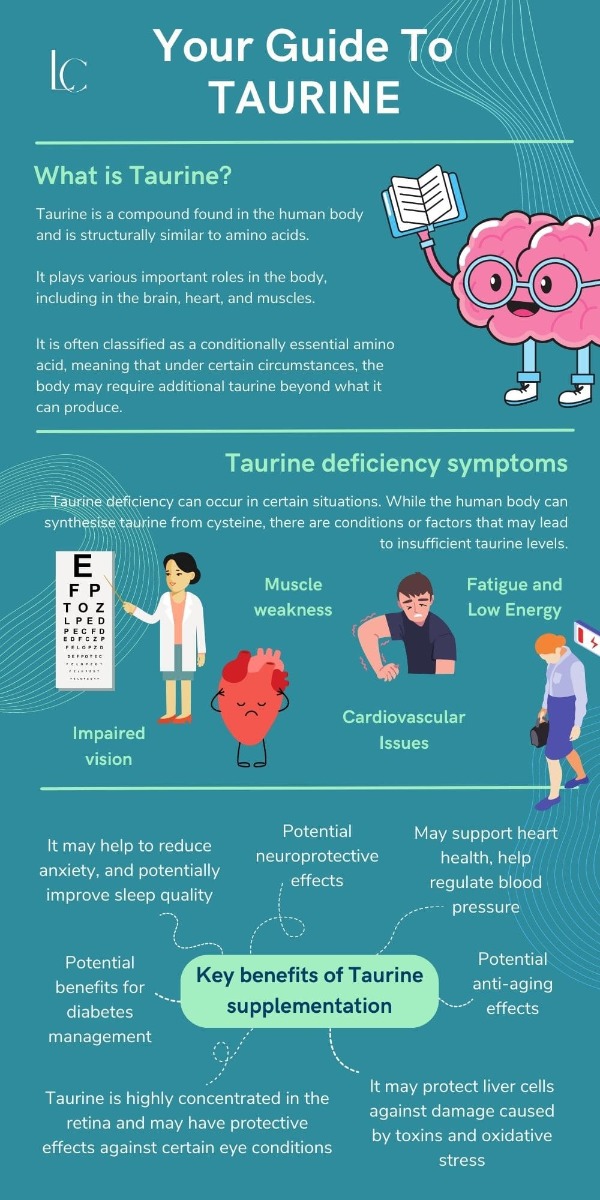
By Saarah Mengrani, MSc Biotechnology

